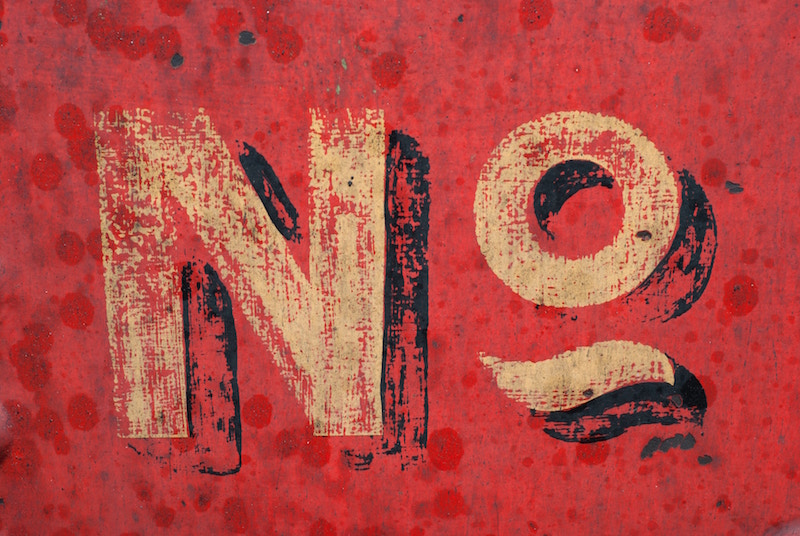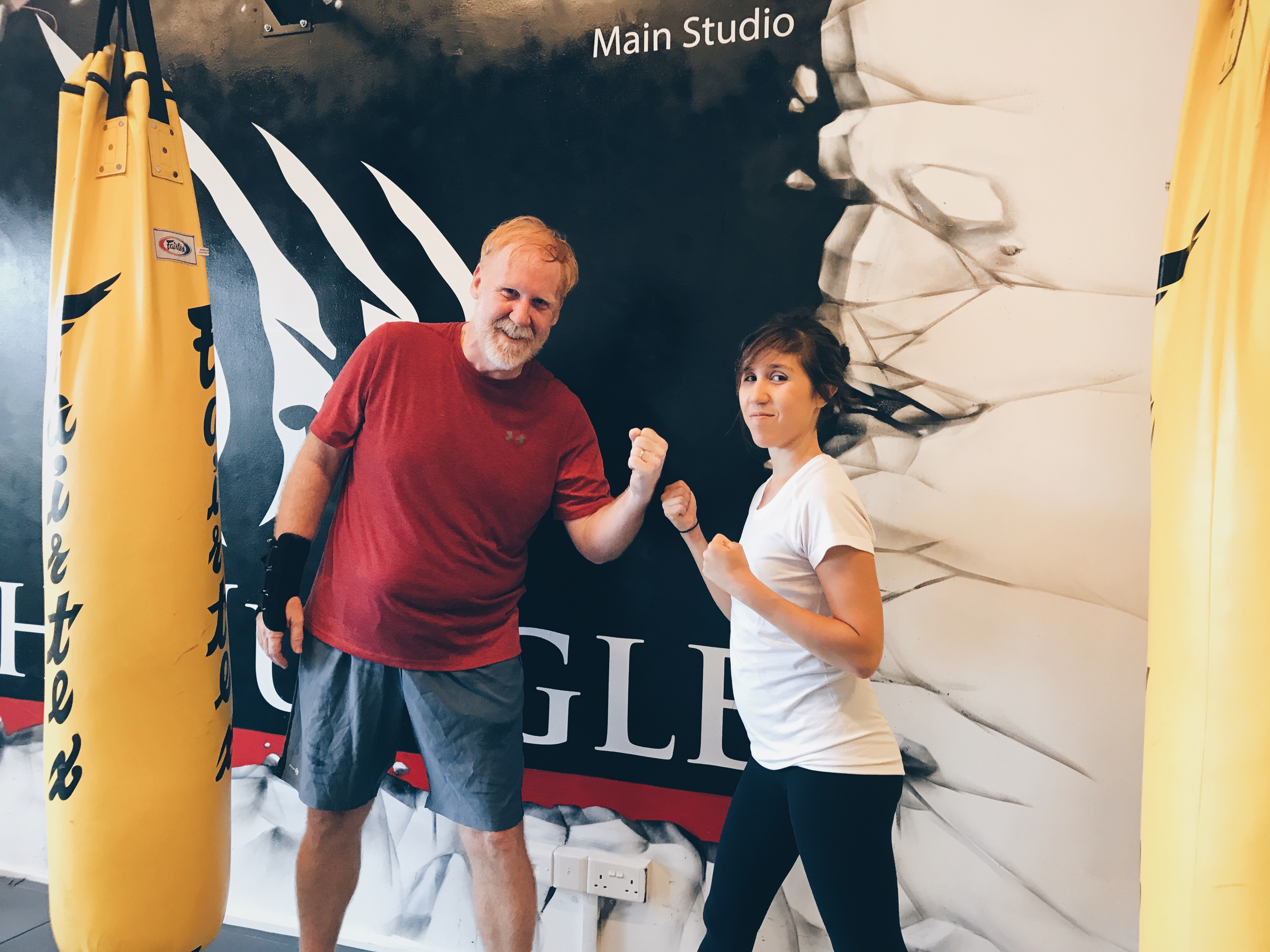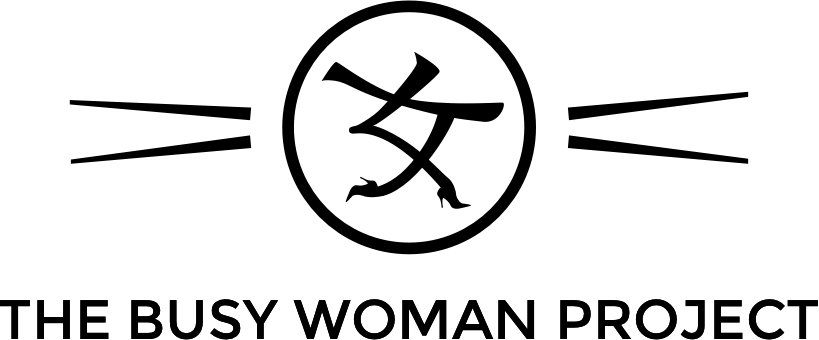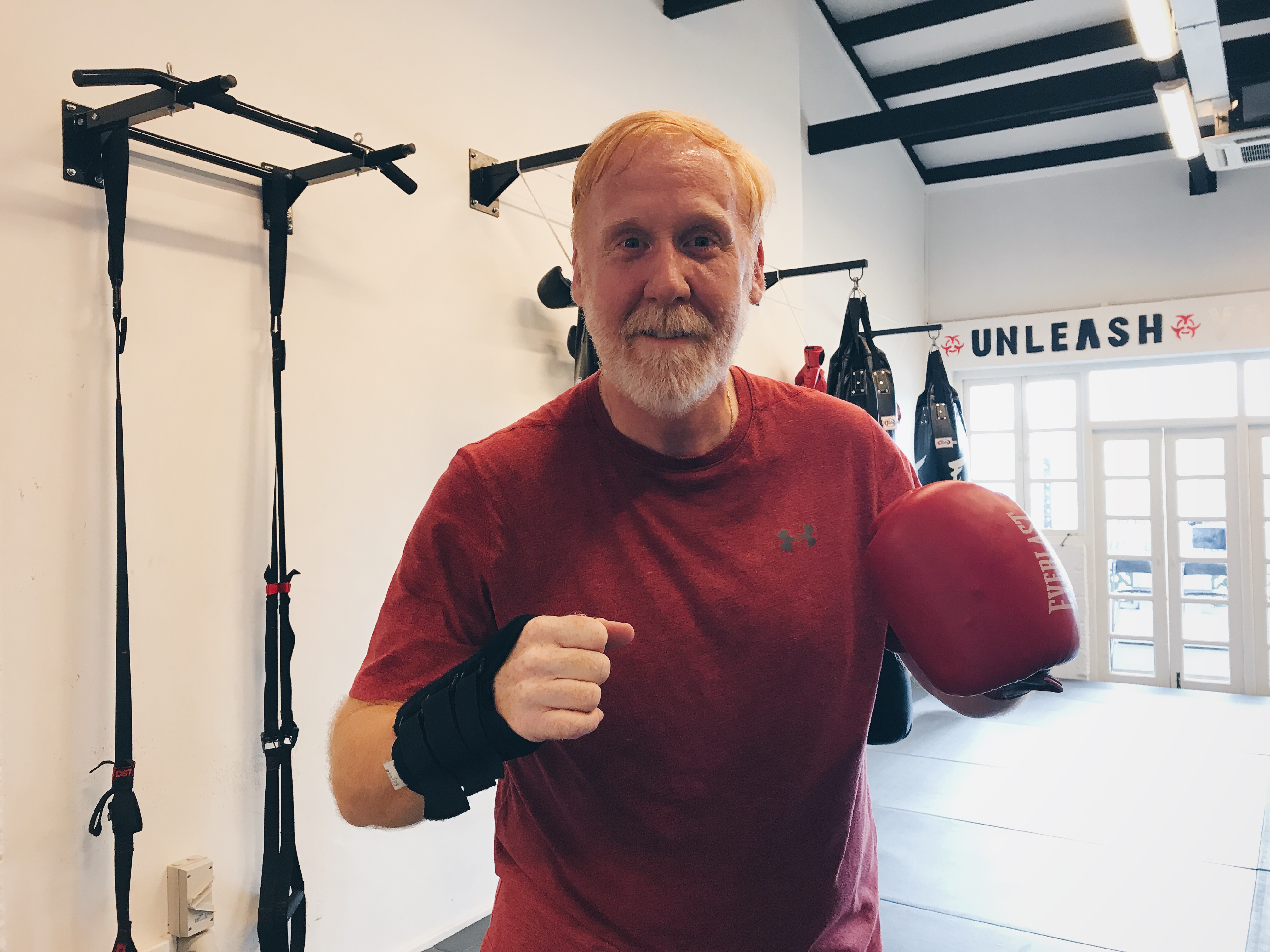If you have ever found yourself being spoken down to, or being disrespected at work, whether woman or man, having to be in that situation is unpleasant and unnecessary. We #pressforprogress, but we can do zilch if we leave anyone out of the conversation. What we, as a collective, should strive towards is building empowering environments for everyone to thrive, regardless of gender, age, race and any other differences that we may have subconsciously (or consciously) singled out.
And as such, we are absolutely honored to have Nels Friets as The Busy Woman Project's Senior Advisor! Nels is the Vice Chairman & Co-Founder at tryb Group, a Singapore-based organization that holds stakes in a number of fintech businesses, and sits on a number of boards including Fullerton Fund Management.
In the following interview, we hope his sharing on purpose, success & habits would inspire you to take action as much as he has inspired us! His very being, is an example of how one can create a supportive environment for individuals to thrive, whether as a board member, senior management, and as a mentor...
![]()
What are some ways you live a purposeful life?
Nels Friets ("N"): If I were to put this in one sentence, it is to use my god-given talents and opportunities to impact others in a positive way. Whether it is for family - to pass on a legacy to my children; or, to help people in the community and/or businesses. Because, I believe we are all given different talents and opportunities.
Those talents also appear over time. So I write poetry now. I didn’t start doing that until 10 years ago and it wasn’t something I even knew I had in me growing up as a math geek. Talents develop, and you have to work on them. It is the opportunities that dictate if they can be applied. So if all you do is sit in your house, you are never going to get the opportunity to influence and impact others.
And I use the word impact over influence, you can influence people as well but you want to impact them in a positive way. So I think about every interaction I have as a chance to impact someone.
If I get to the end of the day or a quarter, I'll ask myself if I have impacted somebody’s life? Sometimes, you don’t even really know - you can give a smile to somebody on the street, and that could have really made their day. Or, in obvious instances where you work with people, you can see how you’ve impacted them directly.
How has this purpose evolved over the years?
For me, it has gone from being more solo, to thinking about other people. When I was younger, the focus was on my own career and as you get older, you think about more people. And then, you get to a really old stage when you start thinking about mentoring people.
From a professional side, that’s what really drives me. I really love working with younger people who want to learn and that’s been the case for a while. At this stage, that’s how I choose who I want to work with - is it somebody I can impact and wants to be impacted?
I always knew my values, but I didn’t necessary abide by them. But as I grew older, my decisions have been much more thoughtful. “Is that the right thing to do? Is it helping the other person?” And if I’m in a negotiation, I don’t have to get the final little bit – sometimes, it is okay to let the other person have it.
What are some questions that someone can think about if they are feeling “lost”?
If you are feeling lost, then that means you don’t really know where you are coming from, or where you are going too.
You want to start with perhaps learning. What have I learnt and what do I want to learn? Part of impacting is that you have to constantly learn and groom your talents. It doesn’t have to be from a book, it can be from experiences, it can be learning how to do Thai boxing, doing different things.
To do that, you have to sit back and decide what do you want, and how you allocate your time. So if you are feeling lost, it normally means you are overloaded with things, or you have forgotten what your objective is.
We don’t all have that same objective for a 100-year life - it could be 6 month or 3 year objective. Lost is more of a sense of direction. So what are your objectives? What are you trying to achieve? A lot of that is - what do you want to learn. Cause I think once you stop learning, you really fall. It could be physical. It could be mental or emotional.
Your experiences that you are willing to share regarding finding purpose in life.
I took over as research head at CLSA, and had a team of 6. 5 of them eventually became research heads of their own right. I look at it as being able to take talent, groom them, and hopefully they’ve learned some things. I was blessed with a talented group of people, I was able to help them to grow into what they wanted to be.
The fact that I still have ex-staff, clients who still come to me for questions, and still think I have knowledge to share – I must have done something right there, doing things differently.
On the personal front, I’ve seen it with some companies I get involved with now. “Oh Nels is involved? Ok, we’re happy to go ahead.” (Obviously it isn’t everybody, but there’s enough people who do.)
What is the legacy that you leave at the end of your life? It’s the relationships and how you’ve impacted others. I don’t think its how much money you leave behind.
...But the real legacy is, how you’ve impacted the next generation – a family, community, professionally. This doesn’t mean you shouldn’t try to be excellent at what you do. No. You got to have standards, but that doesn’t mean you have to spend all of your life developing/being the best. There are other parts to life that are just as important.
If my purpose in life is to help other people, or encourage other people, it doesn’t matter whether they are my employees or my bosses, my peers or a stranger on the street. I will spend time talking to the security guard or the receptionist, just because they’re people and get ignored a lot of times. A simple smile, or ask them how they’re doing - it is amazing what a difference that can make in their lives, for an investment of a few minutes.
To me, everybody is a person. I’ve never held the view that you should only treat somebody nice if they’re your boss. Treat everybody, small, big, senior, junior with respect – if anything, we should be treating those less privileged better, because they are not going to get the attention that some of the big shots are going to get.

Any healthy habits that you’ve taken up over the years & most recently?
I’ve been able to get into better shape in the last year or so. Part of that is driven by some skills/habits that I’ve had before.
One habit is trying to be very organized. What do I want to get done that day, and recognizing that I am going to need some breaks in between. If I have a meeting, I’ll try to write up notes and send a follow-up note within 24 hours. Being prepared for meetings - if somebody sends me questions, I’ll try to give thought to it ahead of time. That’s respectful. Also, it reduces the stress on me.
On the physical side, it wasn’t a matter of making a dramatic change, it was a matter of making a number of incremental changes - and so, going to the gym a couple more times in the week, spending a bit more time at the gym each time, cutting back on food a little bit, walking up the stairs instead of taking the lift. And all of those things add up. If you do the right thing, you get the right results.
On the health front, terms like balance and sustainability come up a lot. Don’t do something that can’t be sustained in the long term. At one point, I got way out of balance. I was down to about 3-4 hours of sleep, working 18 hours a day. That’s not balance nor sustainable. That also meant that some parts of my life really disappeared. I burned out and it was just bad news. And did my bosses appreciate it? Maybe. But they just thought, just give him more and more work. “If he can work 18 hours, more, 19! Go for it!”
A healthy habit is learning to say no. You’ve got to take care of yourself, if you don’t, you can’t take care of other people. And taking care of yourself is not just physically, it is emotionally, it is about learning. For me, if I haven’t learnt something - reading, interacting with people, keeping up to date with current affairs, debate, I’m gonna lose some of that edge.

Another healthy habit is looking at every interaction and every person as a learning experience. I’ve learned more from bad managers instead of good managers – because I’ve learned what I don’t want to do. With interactions, you learn what communication styles work, their points of view, you learn how to get along despite having such different views.
A lot of these healthy habits are about learning and applying.
Other productivity tips:
- Turn off your email for 2-3 hours. It is amazing how much gets resolved anyway, and how much you can focus in that time. When I was at Citi, I used to get more done within 630-730am compared to the rest of the day!
- Being organized and taking notes at every meeting. Part to remind me of things, part to remind me what is important. There are all sorts of tools you can use for that, and they don’t have to be complicated.
- Learn who you are dealing with, and what their strengths and weaknesses are, and work around that. People have different skills. Don’t expect people to change. If you are trying to change those people, you’re adding stress to them and yourselves. That’s not healthy and that’s not gonna help you get things done.
I think the other one on the healthy side: If you give the man a fish, you feed them dinner; if you teach a man how to fish, you feed them for life. When you get a junior person, and things are going crazy, if you teach them how to do something, it takes longer the first few times, but then that gives you leverage later on, and helps them as well. There’s a lot of people who are like “that’s taking too long, I will do it myself” - have the patience to work with other people, they might ask questions that you can learn from.
How have you seen the changes you made help you professionally and personally?
Focusing on the physical side in the last year or so has actually helped me with confidence. I can talk to other people about health, and it’s not just what I say but also what I’ve done. And if I can do it, you can do it. Being able to set that example, and show that it is sustainable, then there’s really no excuse for other people. I didn’t realize the impact it had on my confidence. I always thought, I’m old, I’m confident, but it just helped me (and my tailor a lot). Part of it is ego for sure, but being in better shape really helped me feel better.
Even when I was not in such good shape, the days when I go to the gym at lunch, I’d be more productive in the afternoon. Just the adrenaline, fresh air (maybe)…
What are some steps people can take to live a more purposeful and well life?
Be thankful, because that leads to a more positive outlook. We all have things we can be thankful for. Even if it is raining outside, or on your worse day.
Be helpful. Helping others is an expression of being thankful as well.
Be balanced.
Don’t be too serious. Laugh! If you’re at the office 8-10 hours a day, and if you can’t have some enjoyment time there, it’s a pretty sad life. Laughter is part of enjoying life and part of being balanced as well.
Who do you admire or respect? Why do you respect them? Pickup the positive aspects you can learn from. What is it that you want to be remembered for?
Once you start thinking about your legacy - that should drive what you do. People have to realize that you can change your mindset overnight, but your legacy or your reputation is built up over time. Reputation takes years to build up, but can be destroyed in minutes, and that should remind you how to live as well.
I’m not saying that my purpose is right for everybody else. But whatever it is, ask yourself “Is what I’m doing, consistent with that purpose, and driving me towards that vision that I have?” It doesn’t mean that everything is, but if you’re spending 80% of your time not, you are not going to achieve it.
For the most part, I can learn from anybody and everybody. Be honest about the good and the bad. Take bits and pieces, and try to be you own person.
You can’t choose your family but you can choose your friends. I’m fortunate that I look up to both my family and friends and still learn from them.
What is success to you?
The how: Success to me is learning, laughing, and loving. I want to be able to do this everyday.
The what: I get a lot of pleasure and fulfillment by seeing a child or somebody I’m a mentor to, or somebody I’ve worked with, reach their objective or dream.

Other reads: #teambusywoman shares: What Do I Want? - by a 20 year old millennial
Feedback, questions, collaborations? Please drop a note to [email protected].

